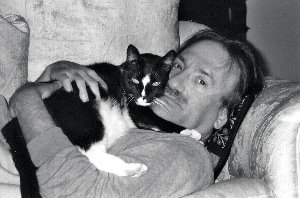Return to Kerala
I wish I could give you the link to the full text of Rahul Jacob's article in the Financial Times, This Should Be the Age of the Train. But since I can't, I hope no one minds if I quote the final two sentences, "I remember returning by train to Kerala, where my grandmother had lived, with my parents 20 years later. Entranced by the sight of tracks bisecting preening paddy fields and barefoot girls running to school with hibiscus in their hair and the smells of breakfast emanating from a thousand wood fires, I wondered whether all tropical homecomings were so redolent that you 'had to select senses' (sight or smell or sound) for a day as Michael Ondaatje once put it. As the train trundled along, I stood by an open door for two hours to take it all in; the windows simply were't big enough." I'm reminded by this of the first time, at age ten, I rode the Long Island Rail Road main line to Greenport. The final stretch after Southold, where the tracks pull away from the road and cross the salt marshes with glimpses through the woody islands to the bay is also redolent of... of the end of the line, of the continent ending and the ocean beginning.

